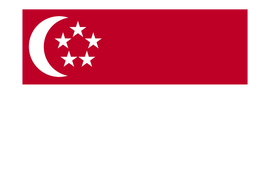
U.S. Finalizes High Antidumping Duties on Some Chinese Electric Vehicles
Estimated reading time: 4–6 minutes
Commerce Finds Dumping
The Department of Commerce found that these LSPTVs from China are being sold in the United States for less than their fair value. This means that U.S. companies are hurt because Chinese companies are selling LSPTVs at unfairly low prices.
The investigation looked at sales from October 1, 2023, to March 31, 2024.
What Is Covered
The products affected are low speed personal transportation vehicles and their parts, even if they are unfinished or unassembled. LSPTVs are small vehicles, with four wheels, a steering wheel, and seats next to each other. They can run on electric or gas power, and cannot go faster than 25 miles per hour. Go-karts, off-road vehicles, mobility scooters, and some other vehicle types are not included.
Who Is Affected
Many Chinese companies were investigated. Two major companies, Guangdong Lvtong New Energy Electric Vehicle Technology Co., Ltd. (Guangdong Lvtong) and Xiamen Dalle New Energy Automobile Co., Ltd. (Xiamen Dalle), were looked at closely. Other companies also asked for lower rates because they said they were different from the main group of Chinese companies. Some of these companies received different rates based on their information.
Final Dumping Margins
The Department set very high antidumping rates. Here are the dumping margins:
- Guangdong Lvtong: 119.39%
- Xiamen Dalle: 312.31%
- Other Companies with Separate Rates: 291.04%
- All Other Chinese Companies (China-wide rate): 478.09%
This China-wide rate is based on the highest number provided in the investigation because some companies did not work with the Department.
Cash Deposit Requirements
Now, U.S. Customs will keep holding back money (cash deposits) when these vehicles are brought from China. This deposit matches the rates listed. Liquidation of these imports (final acceptance) will be stopped for entries made after January 30, 2025.
Critical Circumstances
The Department found that, in some cases, companies were bringing in a lot of LSPTVs just before these new rates would start. For Guangdong Lvtong, many separate rate companies, and the China-wide group, stricter rules now apply for goods entered as far back as November 1, 2024.
Certification Rules for Importers
Special certification rules now apply for LSPTV parts, like seat assemblies and motors, that could be used to build these vehicles in the U.S. Importers must show detailed proof that these parts do not arrive with unfinished vehicles or rolling chassis. If not enough proof is given, the highest duty rate (China-wide rate) will be required.
What Happens Next
The U.S. International Trade Commission (ITC) will check if U.S. companies are materially hurt by the Chinese LSPTV imports. If the ITC finds no harm, all the cash deposits will be refunded, and the case will stop. If harm is found, the Department of Commerce will order final duties on the products.
List of Companies with Separate Rates
Thirty-eight Chinese exporter and producer pairs qualified for individual rates, including companies like Dongguan Excar Electric Vehicle Co., Ltd., Haike EV Co., Ltd., and Suzhou Eagle Electric Vehicle Manufacturing Co., Ltd.
Further Information
The full government announcement, including detailed product definitions, specific legal references, and certification requirements, can be reviewed at the Federal Register Volume 90, Number 118, pages 26530-26535, dated June 23, 2025.
Legal Disclaimer
This article includes content collected from the Federal Register (federalregister.gov). The content is not an official government publication. This article is for informational purposes only and does not constitute legal advice. For case-specific consultation, please contact us. Read our full Legal Disclaimer, which also includes information on translation accuracy.








